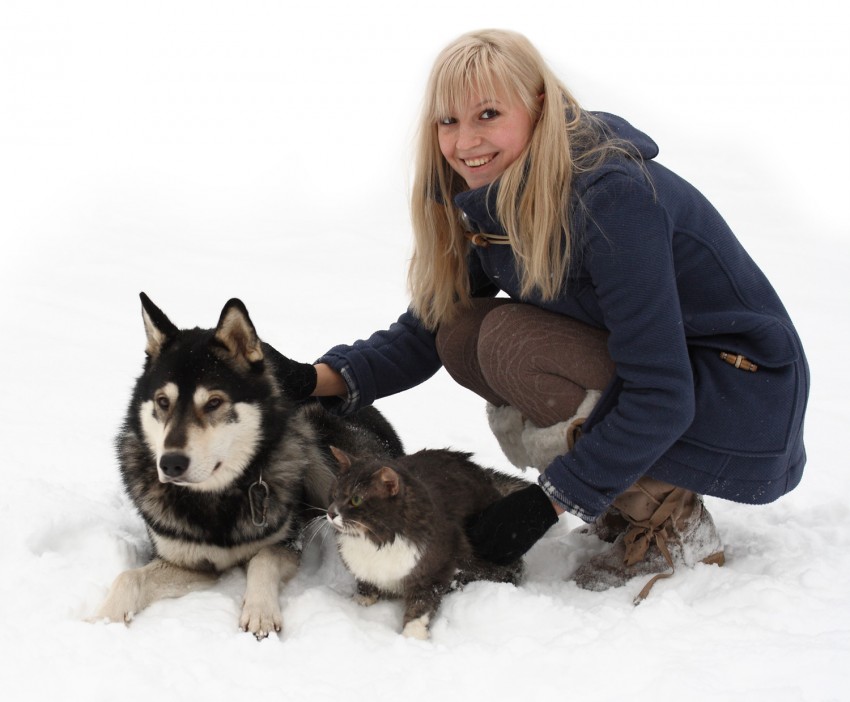By Dr. Susan Nelson on November 13, 2015
Winter Pet Care
Keep your furry friends safe and warm
For many of us, winter weather often means adding a few extra layers and taking special precautions to keep the cold temperatures away. Dr. Susan Nelson, a veterinarian who serves on Kansas State University’s clinical faculty, reminds us that we should also be mindful of our pets this winter season.
“Just as summer brings weather-related health risks, the winter months also come with specific health hazards,” Nelson says. “It is important to be aware of these risks to keep your furry friend safe and healthy during the colder months of the year.”
Nelson offers these top three tips for keeping your pets safe and warm:
1. Make sure your outdoor pets have adequate shelter.
This means the structure they sleep in should be just big enough for them to stand up in and turn around comfortably. A house that is too large will not trap body heat. There should be plenty of clean hay or straw for them to snuggle into to help insulate your pet. Blankets tend to get trampled down and will not offer adequate warmth. Additionally, the house should face the south or west to prevent north winds from blowing in while allowing the sun to shine in during the daytime. If your pet will leave it alone, a flap can be placed over the door to give additional protection against the wind.
2. Provide more food and water.
Outdoor pets need more food due to the increased caloric consumption required to keep warm. It is also very important to ensure pets have a supply of unfrozen water as they can get dehydrated in the winter.
3. Limit time outdoors when temperatures dip below freezing.
Animals with thick winter coats may be better off staying in a garage or basement rather than the main floor of the house so they don’t get too hot. It is still important to provide a soft, comfortable place to sleep.
Nelson says owners should be watchful for frostbite and hypothermia. She encourages shorter walks in cold weather and putting a jacket or a sweater on short-coated dogs. And keep in mind that pets can have aches and pains just like their owners.
Cold weather also means cats may look for warm places to hide including vehicles. Before you start your car, look for signs of a visitor trying to stay warm.
For more pet care tips, visit the American Veterinary Medical Association (www.avma.org) or the ASPCA (www.aspca.org).



